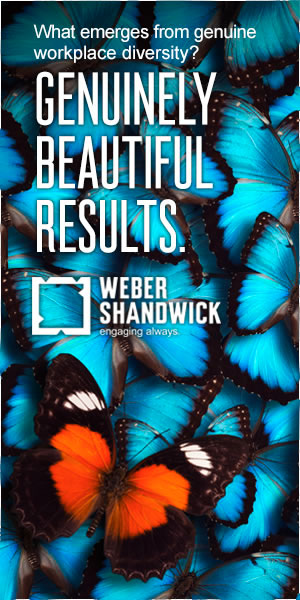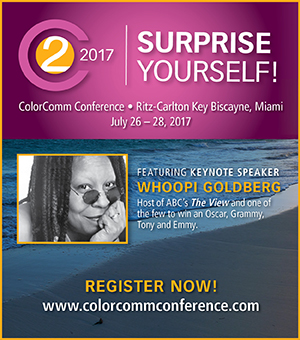5 years ago Kat Gordon launched the 3% Conference. What was intended to be just one event gained so much momentum that companies started to change the way they hired, promoted and marketed themselves based on the movement. At that time only 3% of Creative Directors were women. Today, that number has risen to 11%.
This year’s conference theme was inspired by 11-year-old Marley Dias, founder of 1000 Black Girl Books movement. The astute 4th grader noticed that her reading list featured titles that were all about “white boys and their dogs.” When she raised the concern to her mother, she was met with the response: “What are you going to do about it?” That simple, powerful question inspired two days of amazing content and was posed to all attendees on day one.
The agenda was filled with a mix of women in creative leadership positions with inspiring life stories and journeys to share. By sharing their stories, they ignited a fire in those rising stars looking to make a change.
On the first day, Madonna Badger, CCO of Badger + Winters spoke about her life’s purpose. She talked through her journey in great detail, from the start of her career, the height of her to the darkest days of her life. We learned of her amazing creative victories with the brands she worked with and also about the joy of being a mother. We learned about the tragedy she endured on Christmas Eve 2011, where she lost her parents and 3 young daughters aged 9, 7 and 7 in a house fire. She moved the entire audience with her reflections on life after the tragedy and how she persevered through all of that to move her life and her career forward.
Her purpose lives in her campaign that honors women as subjects rather than objects or props. It is objectification that communicates the wrong image of women. She calls it a curse, for we (as women) will not be treated as equals if we aren’t portraying women as equals. There is a certain harm caused by objectification of women, especially since 90% of women don’t even identify with how they are portrayed. Her mission is to deliver work that is respectful and empathetic of women, making a real connection with them – it needs to be “Whole, human and strong.” In addition to her powerful story, she shared the following learnings she has garnered throughout her lifetime:
• “Impossible is just a small word tossed around by tiny men…” A quote by Muhammad Ali is something she thinks of often when facing challenges as a woman in her industry.
• “I am not the victim of my own life, because we all have the power to change.”
• “You, yourself can create change. It’s an inside job (mentally). If you can change perception in the tiniest bit, you will be surprised to see the whole world open up.”
• “Have the power to do good and you can do no harm.”
Several other presentations during the conference echoed the theme of empathy and how it is a universal currency. We were told to learn how to take risks in our work and to find our voice in this male-dominated industry, because, loud or soft, it’s a voice and it acts as a different vehicle to contribute. If you help create an environment that has respect, you will find that you have multiple voices behind your voice.
Throughout the two days it was refreshing to not only hear relevant points of view, but to hear how others have passed through the industry and made their mark, as women. The underlying message from many of the speakers was to know that we all, as individuals, have the power to write our own story and make the change that is needed to help pave the way. We need to ask ourselves what are the twists and turns that got us here. How can we use that path to pave a better path for future women in our industry? How do we support them and be advocates for their journey.
In addition, something that truly resonated throughout the audience was about creating a safe creative culture. You can have a diverse team, but that means nothing if they don’t feel safe to express their ideas. If everyone works together and can understand and respect the process, the best ideas don’t always come from creative. If everyone feels safe to express his or her ideas, you will begin to benefit from the diversity. As Cindy Gallop said, “diversity drives the creativity that makes a ton of money.”
At the close of the conference we were asked to reflect on what we learned that week. And again, they posed a question to those in attendance: “What are you going to do?” The answer is this: we will continue to be a voice and a guide to all women in our industry and to help push their voices forward, to help guide and to help navigate difficult issues and topics. We will work to ensure that the women we work with always have a seat at the table and we will be open to what we call “next” by being diverse with creative, our teams, and our solutions.
Thank you to Kat Gordon and the 3% Movement for inspiring an industry! For more info: http://www.3percentconf.com.
Story was written by Isobar’s team:
Kelsey Knight | Visual Designer
Amanda Schuler | Associate Creative Director

